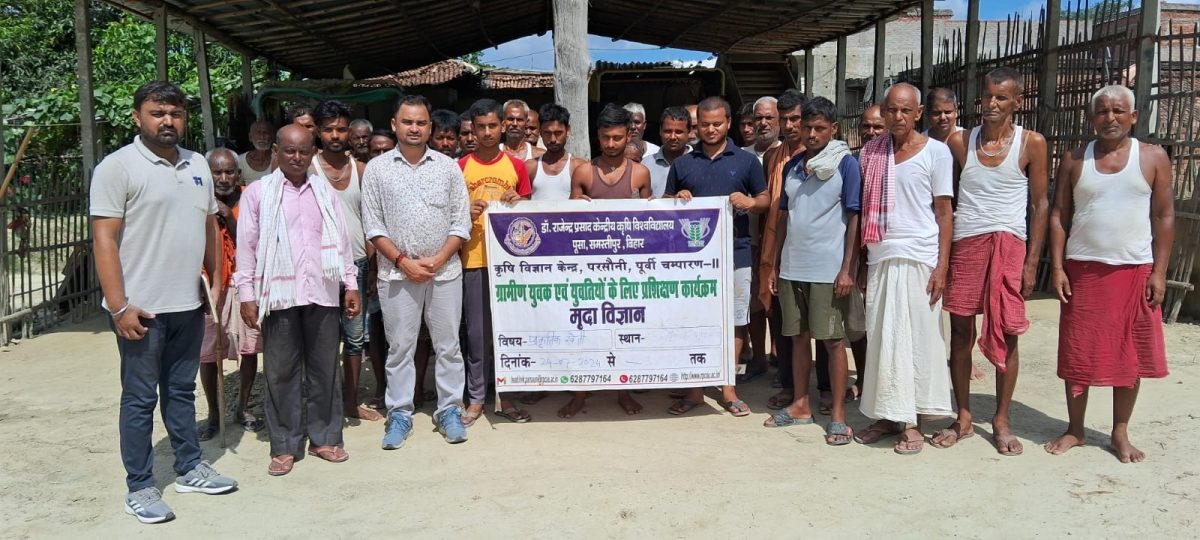
East Champaran, 27 July (HS). Scientists of Krishi Vigyan Kendra located at Parsauni in the district gave training to more than 35 farmers on natural farming on Saturday. During this, farmers of Birta Tola of Ramgarhwa block gained experience in making Jeevamrit.
Addressing the farmers on the occasion, soil expert Dr. Ashish Rai said that for years, the use of chemical fertilizers and pesticides in farming has been having adverse effects on the crops as well as the soil, environment and water sources. Apart from this, these chemicals are also causing short and long term health problems of humans and animals. In such a situation, it is necessary for us to adopt the ancient traditional agricultural system, so that the agricultural ecosystem, environment, biodiversity, water sources and human life can be saved from the ill effects of chemical fertilizers. For this, it is possible to achieve short term and long term goals by adopting natural farming methods. Natural farming can solve many problems related to agriculture.
Dr. Ashish said that through natural farming we can get rid of food insecurity, mental stress of farmers, health disorders caused by the side effects of agricultural chemicals, pesticides and fertilizers, global warming, climate change and natural disasters. Maximum results can be achieved with minimum cost through natural farming. Along with this, there are immense possibilities of employment generation in it, which can reduce migration of rural youth. Along with this, the ecosystem will become well organized and strong with the coordination of livestock farming. He told that environmentally safe bio-products like Jeevamrit and Beejamrit are prepared from cow dung, urine and other natural substances only.
How to make Jeevamrit Jeevamrit is a microbial activator solution that increases the activity of microorganisms in the soil. Along with this, its spraying also increases the activity of beneficial microorganisms in the foliage. It basically acts as a primer for the activity of beneficial microorganisms which also increases the number of local microorganisms.
•Fresh cow dung – 10 kg
•Urine of a local cow – 10 liters
•Jaggery – 02 kg
•Gram flour – 02 kg
•Clean soil from the boundaries of fields/roots of big trees – one handful
•Water – 200 liters, Mix 10 kg of cow dung, cow urine, jaggery, gram flour, soil in 200 liters of water in a drum. Keep the solution in the shade for 48 hours for fermentation. Keep mixing the solution well with a clean wooden stick in the morning and evening. The product prepared from this is suitable for use. This solution should be used at the rate of 500 liters per hectare at an interval of 15 days. It can be sprayed directly or through irrigation water. According to the condition of the crop, it can be sprayed at the rate of 02-10 percent concentration. To get good results, it can be used for 05-10 days. Jeevamrit increases the activity of microorganisms in the soil. These micro-organisms play a significant role in increasing the availability of nutrients in the soil in the plant root zone (rhizosphere). Important micro-organisms like Plant Growth Promoting Rhizobacteria (PGPR), cyanobacteria, phosphate solubilizing bacteria, mycorrhizal fungi, nitrogen fixing bacteria etc. live in the solution of Jeevamrit.
 look news india
look news india